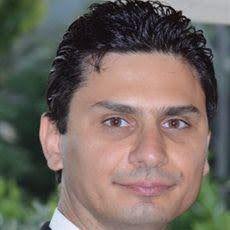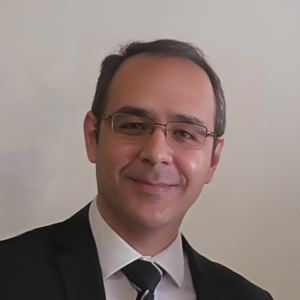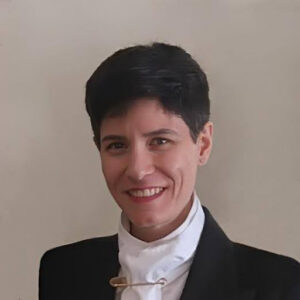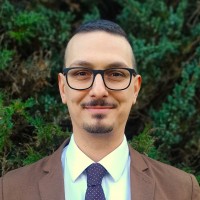
The University of Birmingham is one of the world’s leading higher education and research institutions and a member of the prestigious Russel Group of research-intensive UK Universities. UOB coordinates the MERLIN project through the School of Metallurgy and Materials. The UOB multi-disciplinary research team is led by Professor Mayorkinos Papaelias, Head of NDT and Condition Monitoring Group. Professor Papaelias is an internationally renowned renewable energy expert who has been involved as Technical or Scientific Coordinator in several high-profile national, industrial and EU projects. Professor Papaelias is the Project Coordinator of the MERLIN consortium. The UOB research team leads several critical tasks within the MERLIN project working closely with all participating partners.
Team members

Mayorkinos Papaelias
Professor Mayorkinos Papaelias (Ph.D. in Metallurgy, Chartered Engineer – Greece, Member of the Technical Chamber of Greece) holds the chair of NDT and Condition Monitoring in the School of Metallurgy and Materials at the University of Birmingham. He currently leads the NDT and Condition Monitoring Research Group. He has been involved as technical coordinator or scientific consultant in several FP6, FP7, H2020 and Horizon Europe collaborative research projects primarily focusing on renewable energy sources and transport. In addition to his work on European Commission funded research projects, Professor Papaelias has been funded by the EPSRC, the National Structural Integrity Research Centre, industry and UK government. He has authored or co-authored more than 170 journal and national and international conference papers in NDT and condition monitoring and has edited several books. He is a Member of the International Society for Condition Monitoring, currently chairing the Education Committee. He is the Project Coordinator of the MERLIN project leading the technical agenda.

Gerard Franklyn Fernando
Gerard Franklyn Fernando holds the Chair of Polymer Engineering at the University of Birmingham, School of Metallurgy and Materials. After securing his PhD (Fatigue of hybrid composites) from the School of Materials Science, University of Bath, UK, he worked at the Water Research Centre, Swindon, UK. He then moved to the Materials Technology Department, Brunel University as a Lecturer in Polymer Chemistry. Prior to transferring to the University of Birmingham, he was a Reader at the Royal Military College of Science, Cranfield University, UK. He leads the Sensors and Composites Group. Professor Fernando’s research interests are focused on (i) the clean processing of composites, (ii) development of low-cost optical fibre sensor systems for composites and (iii) electro-spinning of biopolymers

Farzad Hayati
Farzad is an Assistant Professor in Opto-Electromechanical and PNT systems at the University of Birmingham with a strong practical engineering background in electronics and embedded systems. He has more than 20 years of experience in practical electronic engineering and field instruments both in industry and academia and currently collaborates closely with the UK National Quantum Technology Hub in Sensors and Timing and related industries in the field of quantum sensing.
Previously he was a lead research fellow in electromagnetic and low frequency non-destructive sensing at Sonar and Acoustics Research Group. He has a very strong practical engineering background in electronic and embedded systems design and development and his main expertise are in electronics, embedded systems, programming, condensed matter physics and nano-electronics. Over the past years he obtained several awards for his outstanding performance and is a holder of Sir William Siemens Medal. He is also a senior member of the Institute of Electrical and Electronics Engineers (IEEE), member of Institute of Physics and member of Institution of Engineering and Technology (IET).

Sanaz Roshanmanesh
Dr. Sanaz Roshanmanesh is a Research Fellow in the School of Metallurgy and Materials at the University of Birmingham, with a multidisciplinary background. Her expertise spans mathematics, signal processing, electronics, satellite and mobile communications, RF and microwave engineering, remote sensing, and non-destructive testing (NDT), as well as the broader field of engineering.
Currently, she is involved in several multidisciplinary projects, collaborating with both the University’s NDT research group and the UK National Quantum Hub in Sensing and Timing. Her work focuses on advancing applied engineering by addressing complex challenges in RF technology and related fields.

Matthew Gee
Matthew is a Ph.D. researcher and materials engineer at the University of Birmingham, specializing in Acoustic Emission monitoring and signal processing, amongst other Non-Destructive Testing (NDT) techniques. There is heavy utilization of data processing within this as well as assisting in future developments for digital twins of associated components and the integration of integrated on-line monitoring systems.
He is also working on additional European energy projects focusing on condition and structural health monitoring of composite materials, as well as similar work on engineering components outside of these projects.

Vincenzo Brachetta
Vincenzo is a Research Fellow at the School of Metallurgy and Materials, University of Birmingham, with a strong background in computational engineering, finite element analysis, and data science. He also holds the position of Chair of the ‘Julia Programming Language’ Special Interest Group at the same institution, where he earned his PhD with a thesis focused on advanced numerical methods for the prediction of residual stresses. Additionally, he is a Fellow of the Higher Education Academy and a dedicated educator.
Before joining the University of Birmingham, he was awarded a European research grant, which enabled him to explore the mathematical foundations of finite element analysis at the IAC-CNR (Italy). During this period, he also undertook a one-year study on the calculus of variations and variational methods for fracture mechanics.

